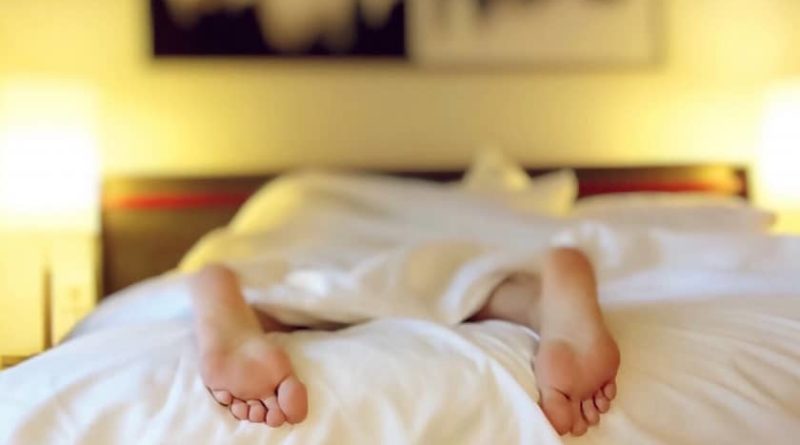What Causes Leg Cramps at Night? [& How To Stop!]
Leg cramps can occur at any time, but can be particularly troublesome at night.
Night leg cramps, which are also called nocturnal leg cramps, occur due to spasms or involuntary muscle contractions in your legs.
Most of the time leg cramps at night occur without any apparent cause.
In this article we will look at the most common causes of leg cramps at night, and what can be done to help.
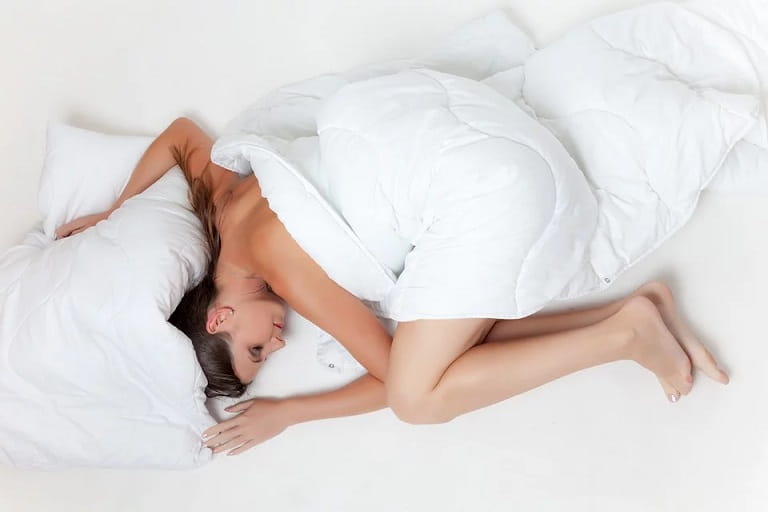
Night cramps are most likely related to muscle fatigue and nerve problems.
Night leg cramps can occur typically in your calf muscles, but sometimes in your thighs and feet. They often start once you are in bed or lying down.
For most people, it can be just leg jerks which wake you up at night.
But for some it can be quite painful and frequent night leg cramps.
This type of cramp can be very distressing to those individuals.
However, if you suffer from frequent leg cramps which disturbs your sleep, or if they are severe and painful, it is often better to seek help. In some cases it can be improtant to establish if there may be an underlying cause which can be treated.
It is known that the risk of having night leg cramps increases with age. Unfortunately, the older you get the higher the chance of you getting leg cramps.
Pregnant women also have a higher risk of getting night leg cramps.
What Are The Causes and Conditions Where You Can Get Night Leg Cramps?
There are certain underlying causes which can make you more prone to night leg cramps. They can be categorized simply into the following 3 types.
1/ Medical Conditions Which Can Cause Leg Cramps
There are a number of medical conditions which can result in you experiencing leg cramp at night.
Diabetes Mellitus – Whether you have Type I Diabetes (Insulin dependent type) or Type II Diabetes (the common form which affects the way your body metabolizes sugar due to resistance to Insulin hormone) can give rise to night leg cramps. Long standing diabetes is known to cause nerve damage (peripheral neuropathy) leading to night leg cramps.
Kidney Disease – Whether acute or chronic, your electrolyte balance will be deranged in kidney disease. This can sometimes give rise to night leg cramps.
Chronic liver Disease /Cirrhosis – In Cirrhosis the liver does not help to wash out the toxins. The oxidative stress can increase the excitability of neurons (nerve cells) which leads to night leg cramps.
Anemia – When there are not enough red cells in your blood to carry oxygen to your leg muscles, night leg cramps can occur.
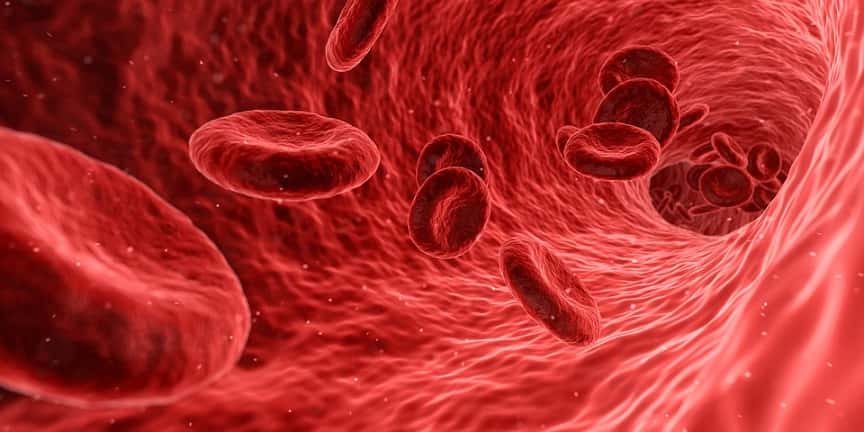
Thyroid Disorders – Both Hyperthyroidism (excess thyroxin hormone in your blood) or Hypothyroidism (lack of thyroxin in your blood) can give rise to muscle weakness, causing night leg cramps.
Peripheral Artery Disease – This causes reduced blood flow to the legs leading to night leg cramps, as leg muscles will not get adequate oxygen.
Electrolyte Imbalances Caused by Adrenal Insufficiency – Electrolytes play a major role in muscle contraction and relaxation. When this balance is lost cramps can occur.
Osteoarthritis – People who have this chronic disease which damages the joints can get additional strain on muscles, which can give rise to leg cramps at night.
2/ Medications Which Can Cause Leg Cramps
Certain medications actually list muscle cramps as a side effect. Examples of such conditions are as follows.
Diuretics – These help to rid your body of sodium (salt) and water. This might tip your electrolyte balance leading to night leg cramps. This is a common side effect if you are on long term diuretics.
Certain Blood Pressure Drugs – Apart from diuretics used for hypertension, other blood pressure drugs like ACE Inhibitors, Angiotensin II receptor blockers and Beta blockers can cause night leg cramps as a side effect.

Cholesterol Lowering Drugs (Statins) – Night leg cramps is a common side effect of statins
Oral Contraceptive Pills – Due to concentrated levels of hormones in oral contraceptive pills, women who use it may experience night leg cramps as a side effect.
3/ Other Conditions Causing Night Leg Cramps
Dehydration – This can reduce blood supply and change electrolyte balance (especially sodium and potassium balance) which can lead to night leg cramps.
Diarrhea – If you suffer from diarrhea or frequent loose stools, you can get dehydrated leading to night leg cramps. Diarrhea can cause electrolyte imbalance if severe and long standing.
Dialysis – If you are on dialysis for chronic kidney failure, your electrolyte balance may be deranged leading to night leg cramps.
Pregnancy – When the enlarging uterus presses on certain nerves which supplies the legs, or causes pressure on blood vessels, this can reduce circulation to the legs causing leg cramps. Pregnant women can experience constant fatigue which can make them more prone to night leg cramps.
Muscle Fatigue – When your muscles are tired due to activities done during day time, such as standing for a long time or walking in high heels, you may experience leg cramps at night.
How To Stop Leg Cramps At Night?
Fortunately there are several easy ways in which you can help reduce and prevent leg cramps at night.
The following section covers these methods in detail.
What Are The Self- Care Methods and Home Remedies Which You Can Try For Leg Cramps at Night?
There are some home remedies and easy to follow self–care methods which may prevent night leg cramps, or help you during an episode of leg cramps.
These life style changes may work for many patients who suffer from night leg cramps but may not work for some individuals.
Bed Covers – Un-tucking the bed covers at the foot of your bed can reduce the tightness at your feet, helping your leg muscles to relax.
Stretches – You can stretch your leg muscles before going to bed or ride a stationary bicycle for a few minutes, so that blood supply will be increased to your legs which can reduce the risk of night leg cramps.
If you experience night leg cramps following home remedies can help you ease the pain.
Massage – Massage your cramping muscle with your hands or forcefully stretch that cramping muscle. Gently rub the affected leg with your hands until the pain subsides.
If it is a cramp in your calf muscle, stand and put your weight on your cramped leg and slightly bend your knee.
Maintaining this posture will soothe your calf muscles by stretching it. You can also sit on floor or on a chair and keep your affected leg extended.
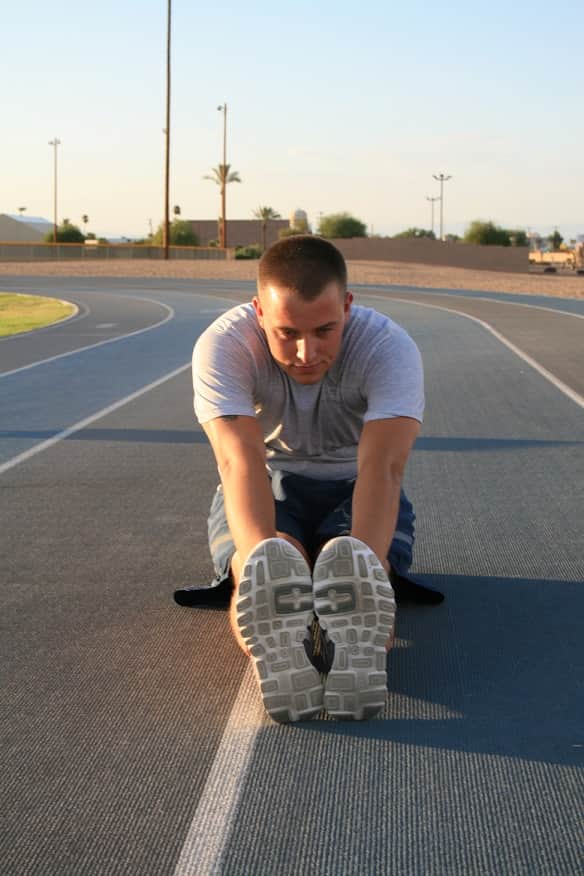
You can pull the foot on your affected side toward your head, while keeping that affected leg straight. This position will also help cramps in your hamstrings (back of thigh).
If the cramps are on your thigh muscles, hold on to a chair or a wall and keep yourself steady and pull the foot on your affected side towards your buttocks which helps to stretch your quadriceps.
These simple postures and stretching exercises will help you to reduce the night leg cramps.
Ice – Keeping ice packs wrapped in a towel can help to ease the pain and soothe your muscles.
Heat – Applying a heating pad can increase blood supply to your legs and help soothe your cramping muscles. Heat pads can be applied for about 20 minutes.
Stay Active – Get out from bed and walk or simply jiggle your legs.
Bathe/Shower – You can even take a hot shower or a warm bath which may help in preventing further leg cramps.
Footwear – If you are wearing high heels a lot they can cause unnecessary strain to your calf muscles. You can try wearing wedged heels or sandals wherever possible which can ease your leg muscles.
Prepare & Rest – Do warm ups and stretching exercises whenever you engage in running, jogging or exercise, which will help to prevent cramps. Take adequate rest especially when you stand for long periods.
Food & Drink
What you eat and drink is an often overlooked consideration when trying to establish what causes cramps (as we discussed here).
Food – There are certain foods, fruits and vegetables which are rich in electrolytes like sodium, potassium and calcium and also rich in water content.
For example – Seeds and nuts, fruits like berries, grapes, banana, papaya and water melon leafy greens like broccoli, Kale leaves, sweet potatoes.
Adding them to your diet can help you prevent getting night leg cramps to a certain extent.

Fluids – Drink plenty of water and other fluids. Keep your body well hydrated and it helps you to avoid dehydration
When Should You Seek Help From a Doctor For Your Night Leg Cramps?
If you get severe and frequent night leg cramps which disturb your sleep, or if they are unbearably painful and the self-care methods no longer work, it is better to seek help from your doctor.
If there are underlying cause your doctor may be able to treat them.
If the medications you are taking causes night leg cramps as a side effect, your doctor may try to adjust the dosage or change the medications whenever possible.
After taking a detailed history and a through physical examination, certain blood investigations will be done to diagnose any hidden cause which can lead to night leg cramps.
Your doctor can prescribe a medication to relax your muscles, if self-care methods do not work for you.
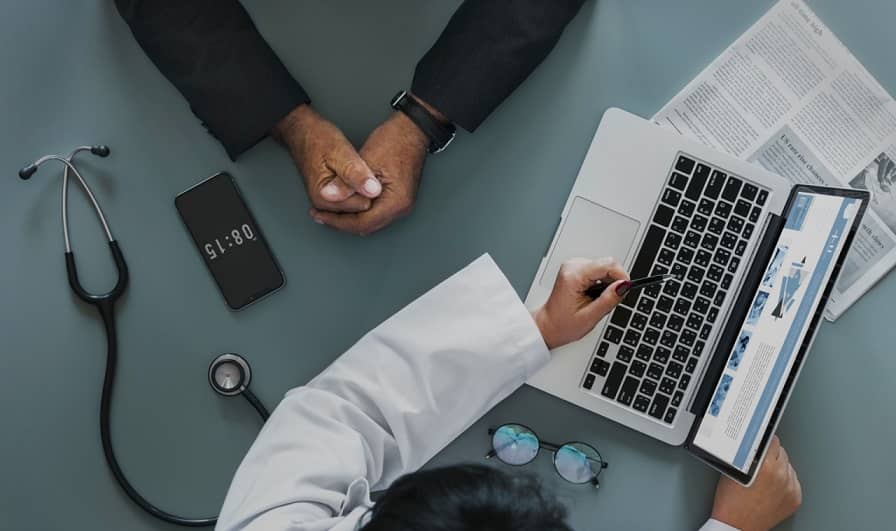
Your doctor may try certain medications like Diltiazem, Diphenhydramine (Benadryl) or verapamil.
But they can give rise to harmful side effects and may not always work.
Therefore medications are only given by your doctor by weighing the benefits and risks carefully, and prescribed in caution.
A muscle relaxant is a medication that affects skeletal muscle function and reduces the muscle tone.
These can alleviate symptoms of muscle spasms and leg pain by helping to relax and reducing tension of muscles.
Some examples of muscle relaxants which may be used by your doctor are; Carisoprodol, Flexeril, Cyclobenzaprine, baclofen, Tizanidine and Methocarbamol.
Your doctor will decide what to prescribe you depending on the severity of your night leg cramps.
Conclusion
That brings a close to this article on what causes leg cramps at night.
Hopefully it has helped you discover what may be causing your cramps, and has also helped you learn how stop leg cramps at night.
Do you have any methods which helped you? We would love to hear in the comments below.
Please check curemycramp.com for more articles.

